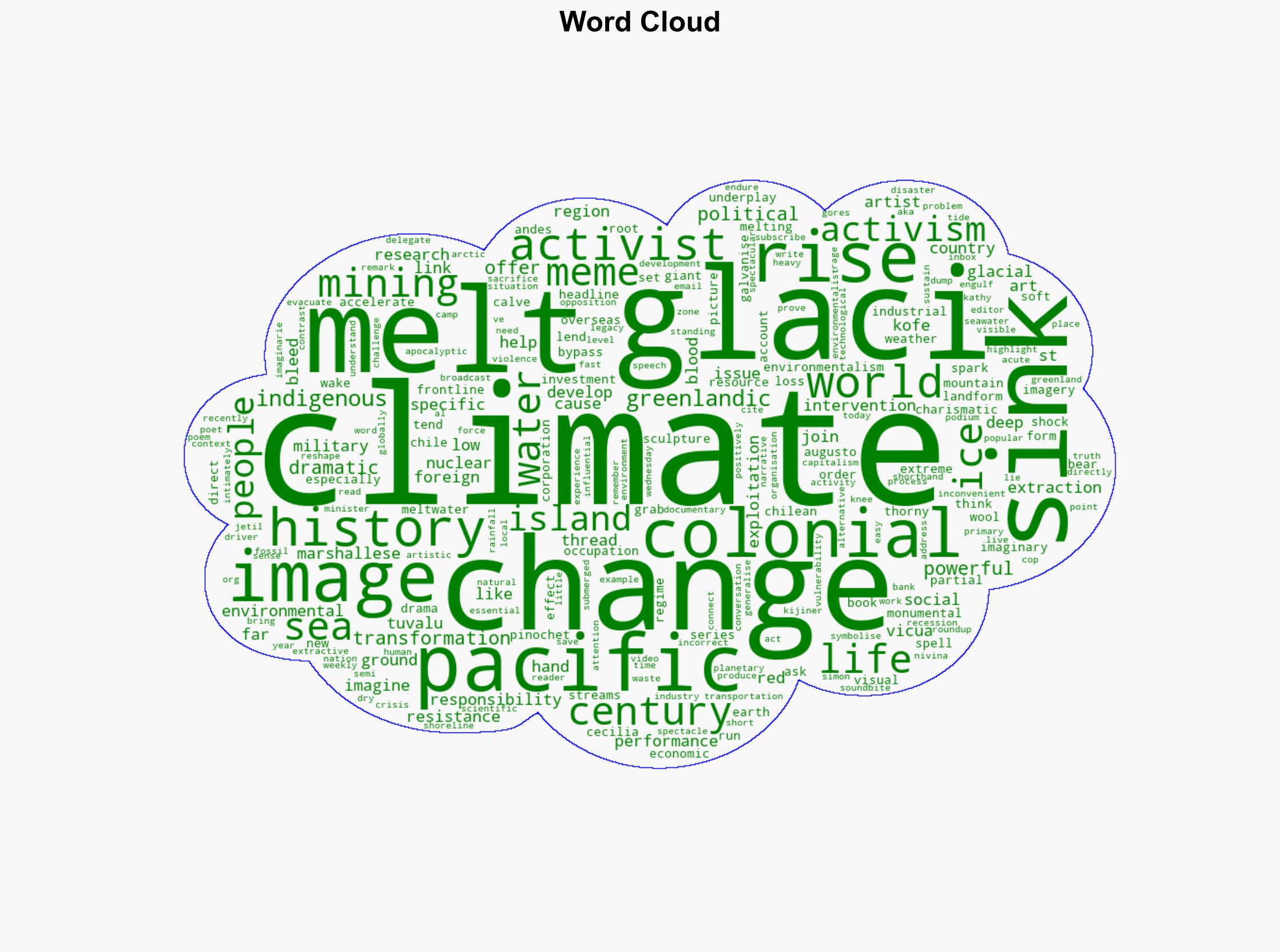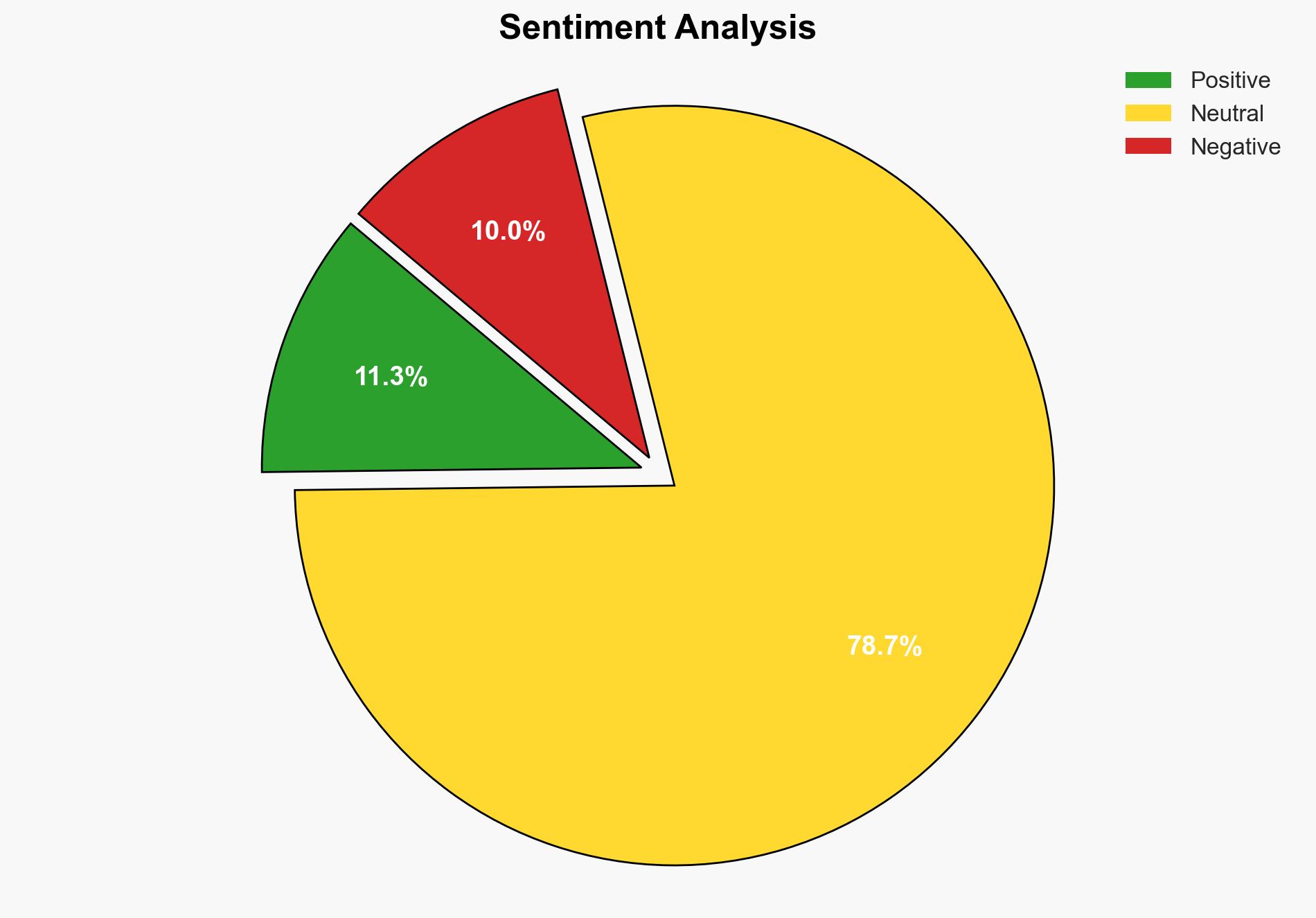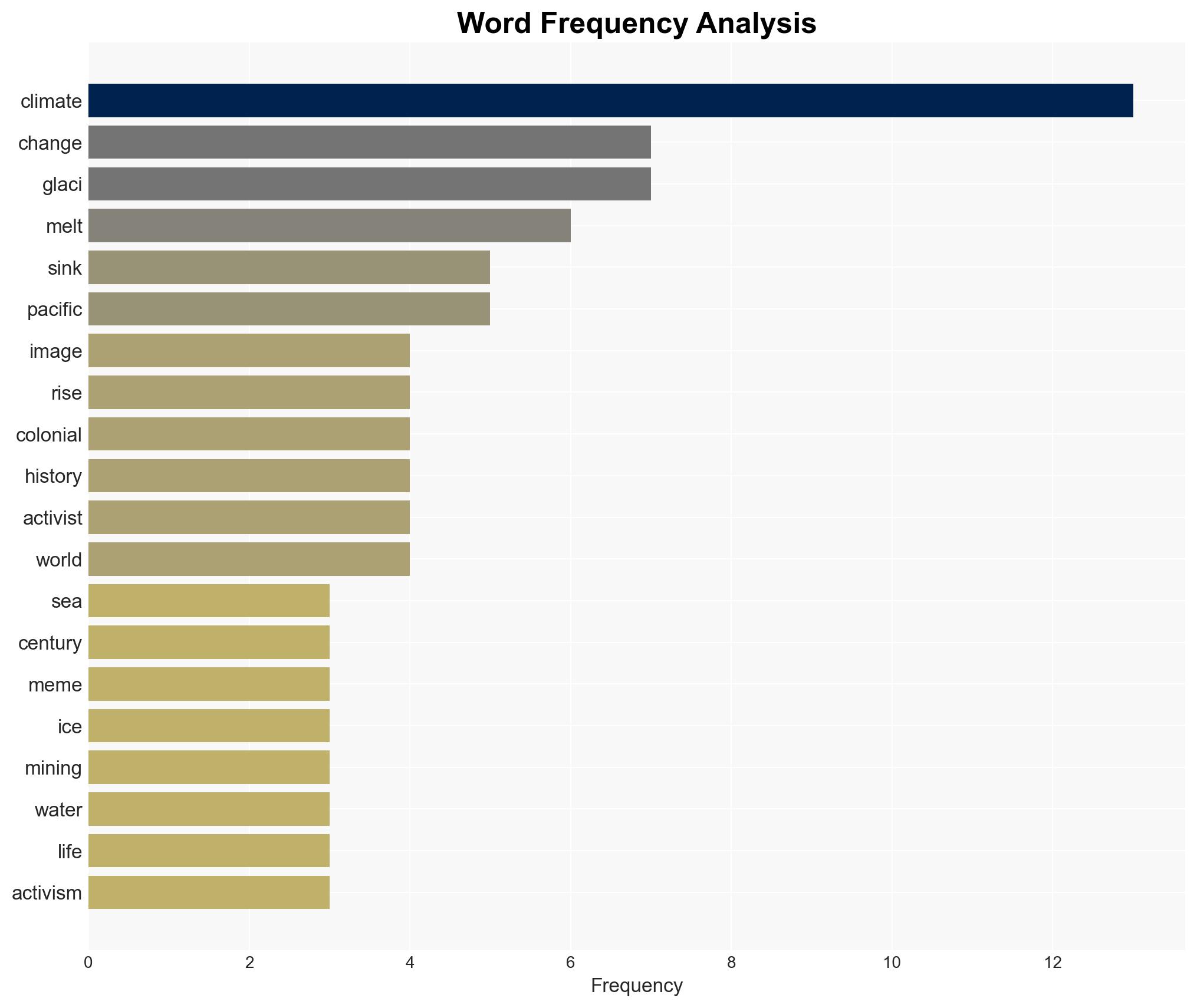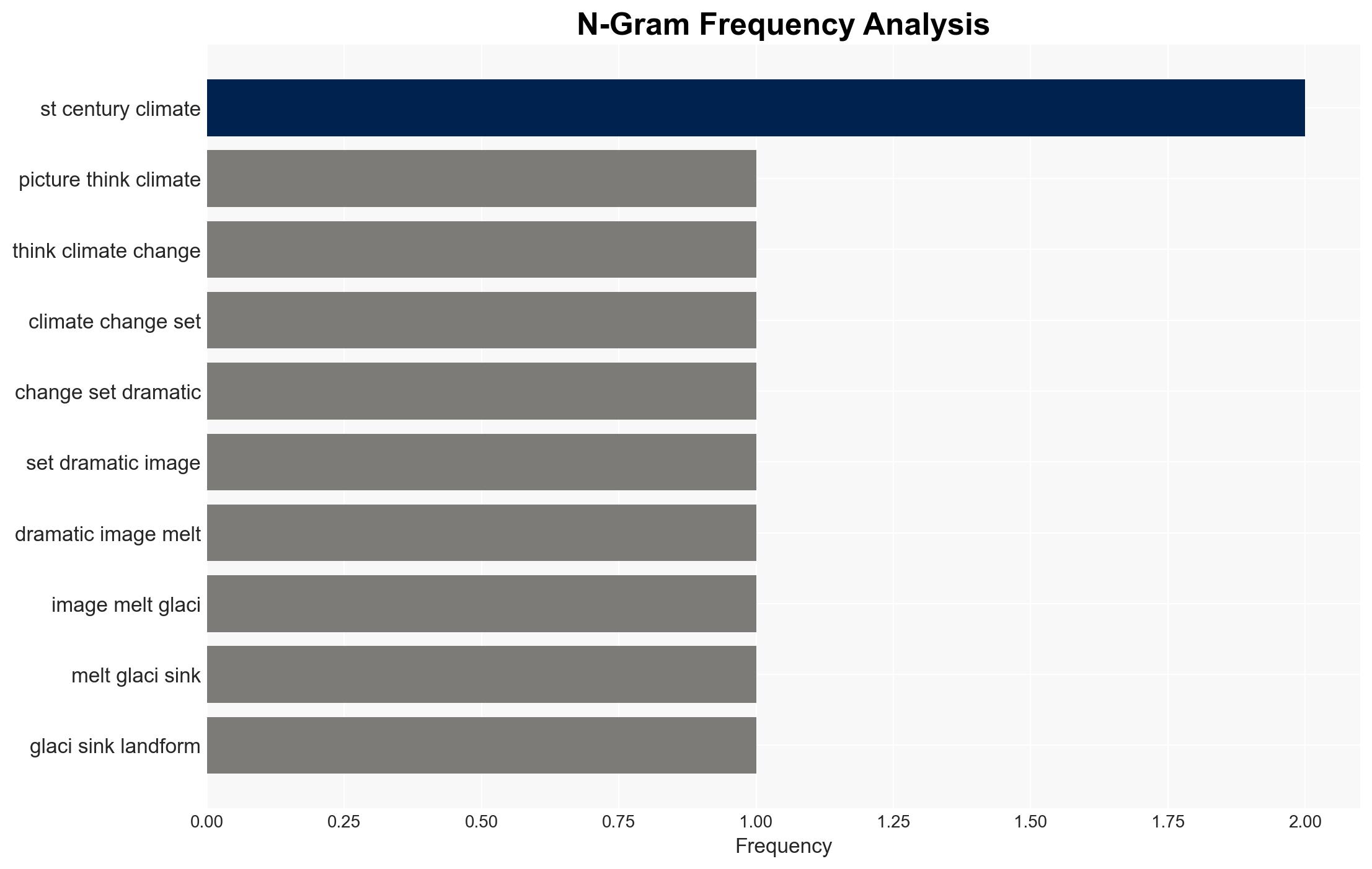Apocalyptic images of melting glaciers and sinking islands wont help anyone imagine a better future – The Conversation Africa
Published on: 2025-11-12
AI-powered OSINT brief from verified open sources. Automated NLP signal extraction with human verification. See our Methodology and Why WorldWideWatchers.
Intelligence Report: Apocalyptic images of melting glaciers and sinking islands won’t help anyone imagine a better future – The Conversation Africa
1. BLUF (Bottom Line Up Front)
The strategic analysis suggests that while apocalyptic imagery of climate change can raise awareness, it may not effectively foster constructive engagement or solutions. The most supported hypothesis is that emphasizing local and specific narratives, particularly those highlighting socio-political and historical contexts, can lead to more effective climate action. Confidence Level: Moderate.
2. Competing Hypotheses
Hypothesis 1: Apocalyptic imagery effectively galvanizes global environmental action by creating a sense of urgency and awareness.
Hypothesis 2: Apocalyptic imagery may desensitize or overwhelm audiences, leading to disengagement, whereas localized narratives that incorporate historical and socio-political contexts are more effective in promoting meaningful climate action.
The evidence suggests that while apocalyptic imagery captures attention, it often lacks the depth needed to inspire sustained engagement and action. Localized narratives that connect climate change to historical and socio-political factors provide a more comprehensive understanding and are likely to lead to more effective solutions. Hypothesis 2 is more supported.
3. Key Assumptions and Red Flags
Assumptions: It is assumed that audiences are capable of processing complex narratives and that localized stories will resonate more deeply than global apocalyptic imagery.
Red Flags: There is a risk of oversimplification in both apocalyptic and localized narratives. The potential for bias exists if narratives are manipulated to serve specific agendas, particularly by entities with vested interests in the status quo.
4. Implications and Strategic Risks
The reliance on apocalyptic imagery could lead to public desensitization, reducing the perceived urgency of climate action. This could result in political inertia and inadequate policy responses. Conversely, focusing on localized narratives may empower communities but could also lead to fragmented efforts if not coordinated effectively. The risk of misinformation and manipulation remains high, potentially exacerbating socio-political tensions.
5. Recommendations and Outlook
- Actionable Steps: Encourage the integration of local narratives into global climate discourse. Support initiatives that highlight the socio-political and historical contexts of climate impacts.
- Best Scenario: A balanced approach that combines global awareness with localized action leads to comprehensive climate policies and increased public engagement.
- Worst Scenario: Continued reliance on apocalyptic imagery results in public desensitization and policy stagnation, exacerbating climate impacts.
- Most-likely Scenario: A gradual shift towards incorporating localized narratives into the broader climate change conversation, leading to more nuanced public understanding and action.
6. Key Individuals and Entities
Cecilia Vicuña (Chilean artist), Simon Kofe (Tuvalu’s Foreign Minister), Kathy Jetnil-Kijiner (Marshallese activist), Nivina (Greenlandic climate poet).
7. Thematic Tags
Climate Change, Environmental Activism, Socio-political Context, Narrative Strategy, Public Engagement
Structured Analytic Techniques Applied
- Adversarial Threat Simulation: Model and simulate actions of cyber adversaries to anticipate vulnerabilities and improve resilience.
- Indicators Development: Detect and monitor behavioral or technical anomalies across systems for early threat detection.
- Bayesian Scenario Modeling: Quantify uncertainty and predict cyberattack pathways using probabilistic inference.
Explore more:
Cybersecurity Briefs ·
Daily Summary ·
Methodology





